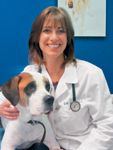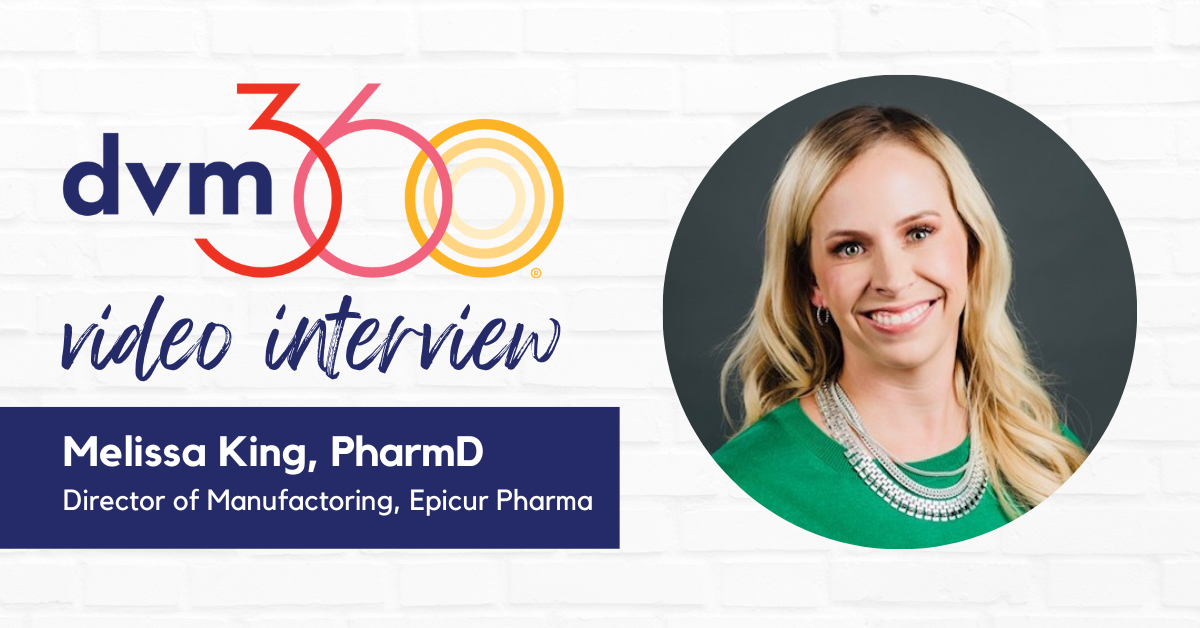The new face of veterinary practice ownership: Five locations and counting
A veterinary practice owner who grew up in a family business learns by doing-and doing, and doing, and doing.
Given their rapid ascent in the veterinary profession, it would appear that women will be the dominant players in veterinary medicine from this point forward. This column is the second of a three-part series profiling female practice owners (see the January issue if you missed part one), and this month we meet Michelle Vitulli, DVM, owner and founder of Caring Hands Animal Hospitals, a successful practice with five AAHA-certified locations near Washington, D.C.

Dr. Vitulli has five thriving veterinary practices in the Washington, D.C., area.
Meet Dr. Vitulli
Vitulli, now in her early 40s, graduated from Cornell University College of Veterinary Medicine in 1991. Even then she knew she wanted to own her own veterinary hospital one day—despite the fact that most veterinary students don't go to veterinary school with aspirations of practice ownership.
Vitulli's family had owned a florist shop on Long Island since the 1940s, and Vitulli worked there with her grandmother as a young girl. She learned how the shop used to make flower deliveries by bicycle and how the family made changes throughout the years in order to grow the business. She also got an idea of what it takes to run a small business and the rewards involved in doing so. It was something she wanted for herself.
Vitulli also loved animals. "I wanted to be an animal doctor from the time I was five," she says. "It just seemed logical to combine the two by becoming a veterinarian and a practice owner." The only hard part, she says, was telling her grandmother she wouldn't be taking over the floral shop.
Right after graduation from Cornell, Vitulli worked in a private practice in upstate New York until 1993. After that she and her husband, a consultant with McKinsey, moved to Washington, D.C., where she went to work at Clocktower Animal Hospital in Hendron, Va. The owner, Bill Schwartz, DVM, "was a good person and a wonderful mentor," Vitulli says. Working with him, she learned how to start a veterinary clinic from scratch. Equally important, she discovered that it was possible to create an environment that reflected one's personal philosophy of care and build a successful business doing it. Not surprisingly, after a few years she decided it was time to go out on her own. She and Schwartz parted ways on good terms.
A veterinary practice of her own
Vitulli began by scouting locations. By that point she knew the area well, and she soon settled on a storefront location in Centreville, Va. The small shopping center was at the edge of Fairfax County in a growing community. She was certain there would be a growing need for veterinary services there as well.
Little did Vitulli know that finding the location would be the easy part. The most difficult challenge was convincing a bank to finance her dream. "I was five years out of veterinary school," she says. "I didn't own a home and I had $50,000 in debt." She says the experience of talking to bankers taught her how important it is to have a good business plan—one you truly believe in—and to keep on knocking on doors. Finally, a female loan officer at Bank of America in Fairfax agreed to work with her, and Vitulli was able to get a $300,000 SBA loan. She opened the Centreville practice in 1997.
Vitulli says the shopping center owner agreed to an intro lease rate that escalated after the first two years; otherwise she wouldn't have been able to afford it. She says she worked with a builder she knew and also used her own money for equipment, legal fees and architectural services.
In the beginning, the practice was open seven days a week and Vitulli was the only doctor. She worked with a relief veterinarian when she needed time off. The practice grew and within a year she was able to hire a full-time associate. "I learned a lot opening that first practice," she says. She asked herself, "Why not use that experience to open another practice?"
In 2002, she did just that. The second practice was located in Arlington, Va., and she opened it with a former associate, Jeffrey Newman, DVM. She says the partnership was an easy choice. Newman also wanted to be a practice owner, and he shared a similar practice philosophy. The two had learned they could work well together.
Financing the second practice was easier, too. This time, she and Newman both put in money as partners for the startup. "The surprise this time was how much work it took to manage two growing locations," Vitulli says.
It was also a struggle to maintain a semblance of life balance. The partners worked at ways to do this even as the practices and their families grew. Vitulli had her first child in 1998, her second in 2000 and her third in 2003. She and Newman quickly began to realize they had to share the leadership and management roles with others if they didn't want to burn out or ultimately fail as practice leaders.
They began by dividing up the management responsibilities: Newman focused on client relationships and building a cooperative referral network; Vitulli took on the business management. They made it a priority to look for and nurture more like-minded associates to add to their team. (Vitulli also credits finding a wonderful nanny for helping her juggle her home and work lives.)
Third time's the charm
By 2005, Vitulli had added a third location in Bristow, Va. By now, she says, she had a good formula for partnerships. This time she partnered with another associate, Karen Murphy, DVM. "Many things got easier with each new practice opening because now we had credibility when we negotiated with vendors, landlords and zoning officials," Vitulli says. The key to success, however, was finding the right people to partner with. "I could not have done it without Dr. Newman and Dr. Murphy," she says.
Caring Hands Animal Hospital has five locations now, having added Ashburn in 2007 and Alexandria in 2012. Each addition to the hospital family has brought new challenges and new opportunities. So what's next for this busy, successful practice owner?
"I like to mentor people," Vitulli says. "I've learned a lot and I want to share it, but doing that in a very large practice is different. I'm working on it!" She also says she needs to offer more professional development opportunities for her team.
"They don't learn how to be good people managers in veterinary school," she says. "It's all about communication, leadership, training and finding the right people."
Karyn Gavzer, MBA, CVPM, is a veterinary business consultant and nationally known writer and speaker. She says her job is to help practices "go and grow" with training, marketing and new ideas. She is an adjunct instructor for AAHA and a founding member of VetPartners.
When cost is a barrier for clients: Navigating financial challenges
May 13th 2025In this Q&A article, Robyn Jaynes, DVM, director of veterinary affairs at PetSmart Charities, shares expert advice on how the veterinary profession can better support pet owners facing financial barriers to care.
Read More










